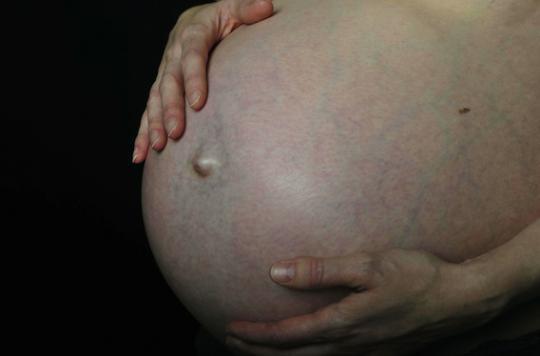Taking folic acid before and in early pregnancy can reduce the risk of neural tube closure abnormalities. However, only a minority of European women supplement themselves.

Among the 27,000 cases of congenital anomalies identified each year in France, we find spina bifida. This disease is an incomplete development of the spine during the formation of the fetus. It prevents the lumbar vertebrae from closing, leaving the spinal cord and its nerve roots unprotected. Due to cerebrospinal fluid leakage, the cerebellum collapses during pregnancy. Cause of paralysis and incontinence, it is the most common disease of the central nervous system, although it remains quite rare – approximately 1 in 1000 pregnancies, or 800 cases each year.
Despite the burden it represents, its prevalence is not decreasing in Europe reveals, this Thursday, a study coordinated by researchers from Inserm.
Posted in The British Medical Journal, this work indicates that current policies have failed to reduce the number of neural tube closure abnormalities in Europe. Among them, we therefore find spina bifida but also anencephaly (malformations of the brain and skull).
In this work, the team led by Babak Khoshnood (1), Inserm research director, set out to assess the long-term evolution of the number of cases of neural tube closure malformation in Europe.
Neural tube closure abnormalities do not decrease
To do this, they analyzed data on more than 11,000 cases of anomalies from 28 EUROCAT (European Congenital Anomalies Surveillance) registers which cover approximately 12.5 million births in 19 countries between 1991 and 2011.
Subsequently, these scientists used mathematical models to be able to compare the differences between the registers.
And the results are final. They report that the total prevalence of neural tube closure abnormalities in 2011 was globally comparable to that observed in 1991 (9 per 10,000 births). This was also the case for the two main types of abnormalities, anencephaly and spina bifida.
Finally, the estimates derived from the models reveal an annual increase of 4% between 1995 and 1999 and a decrease of 3% between 1999 and 2003, then a stabilization for the following years.
The trends for spina bifida and anencephaly were comparable, and no substantial decrease was observed for these two abnormalities.
Only a minority of women supplement with folic acid
The authors stress that this is an observational study, “and therefore no definitive explanation of the causes and effects can be established from these results.” They say, however, that their data support the conclusion that “recommendations, voluntary supplementation, or both, have failed to lower the prevalence rate of neural tube closure abnormalities.” Conclusion, only a minority of European women supplement themselves.
However, it should be noted that there is no program in Europe to add folic acid to certain staple foods (flour, cereals, etc.) as is the case in other countries (United States). United, Canada). However, studies have already suggested that this approach ensures a sufficient intake of folic acid and allows the prevalence of neural tube closure abnormalities to be divided by two “without any serious side effects having been observed to date” .
According to French researchers, the conclusions of this new study “should encourage the competent European authorities to take a closer look at compulsory fortification”.
Each year in Europe, nearly 5,000 pregnancies are affected by neural tube closure abnormalities
.

















